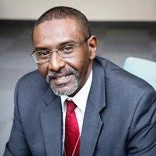
The Middle East and North Africa (MENA) region, rich in hydrocarbons, has experienced both the benefits and drawbacks of its natural resources. The MENA region holds more than half of the world’s oil reserves and 40% of its gas reserves. While these resources have driven economic growth and development, they have also contributed to conflict, economic instability, and excessive dependence on a narrow range of commodity exports. Our new regional flagship report Prosperity Unearthed: Wealth Sharing Mechanisms for Peace and Equitable Growth in the Middle East and North Africa examines the wealth sharing arrangements in MENA and different development outcomes, and suggests ways to promote inclusive prosperity and peace through wealth sharing across time, space, and in contexts of fragility and conflict.
Sharing Wealth Across Time
Fiscal policy has been procyclical over the business cycle in many oil- and gas-rich MENA countries. (Figure 1). This is in part due to their high dependence on volatile oil and gas revenues and lack of fiscal rules and weak automatic stabilizers; and these issues are also present, in varying degrees, in non-oil and gas rich countries.
Figure 1: Expenditure Cyclicality in Oil-rich (Green) and Other (Blue) MENA Countries (2000-2022)

Source: Prosperity Unearthed: Wealth Sharing Mechanisms for Peace and Equitable Growth, World Bank, 2025.
Note: Negative correlation between expenditures and GDP cycle indicates expenditure countercyclicality. Positive correlation indicates expenditure procyclicality.
To responsibly manage hydrocarbon revenues, policymakers in MENA can decouple fiscal spending from resource-based income. This means implementing policies for stabilization and savings, including sound fiscal rules. Stabilization helps mitigate the volatility of resource revenues, while savings ensure that revenues exceeding the government's absorptive capacity are held in reserve for future use. Well designed and implemented fiscal rules can strengthen fiscal sustainability, transparency, and accountability.
However, the performance of MENA countries in managing resource revenues over time has been mixed. While some countries have made progress, especially among the Gulf states, others continue to face challenges, especially post-conflict states.
Sharing Wealth Across Space
Mechanisms for allocating fiscal resources across regions or levels of government aim to balance efficiency and equity. Centralized models, like those in Norway and the UK, allocate revenues through the general government budget, while direct revenue-sharing models, like those in the US and Canada, allocate a share of revenues to subnational governments. In MENA, unitary states dominate, and management of oil and gas revenues is highly centralized. Neither model has fully addressed spatial inequalities associated with resource wealth and in some countries, those inequalities were associated with grievances, contest, and even wars. Overall, while some countries in MENA have scored better than regional and global averages on budget transparency, it remains an issue (Figures 2 and 3). Therefore, transparent, rules-based policies, and accountability mechanisms are essential for successful revenue-sharing models in the region.
Figure 2: Budget Transparency in World Regions (Open budget index score)

Source: International Budget Partnership, 2023.
Figure 3: Budget Transparency in MENA, latest year

Source: International Budget Partnership, 2023.
Sharing Wealth in the Shadow of Fragility and Conflict
Fragile and conflict-affected countries with oil and gas wealth face special challenges in ensuring that this resource wealth is managed well and shared across stakeholders, areas, and levels of government in a way that fosters peace and economic development. In the past 15 years, conflict and associated fatalities were more common in some oil and gas rich economies (e.g., Yemen, Libya, Syria, Iraq) than other economies in the region (Figure 4). In such fragile and conflict-affected settings, wealth sharing can help reduce incentives towards conflict and strengthen social cohesion but, of course, it alone cannot prevent nor stop conflicts. Still, transparent, rules-based mechanisms that mitigate inequality are crucial. However, weak legal and institutional frameworks often undermine equitable sharing of resource wealth in these contexts. Implementing technical solutions requires stable governance, involvement and credible agreement of all stakeholders, and capable public administration.
Toward Prosperity and Peace in MENA
There are many opportunities for MENA countries to achieve sustainable prosperity using their resource riches by diversifying their national assets and transforming resource wealth into physical infrastructure, human capital, and economic institutions. They can also learn from other global examples of countries which have succeeded in this endeavor. There are four major takeaways from our report on how they can move forward:
- To foster macroeconomic stability, policymakers should create or strengthen automatic stabilizers, enhance macroeconomic monitoring, and ensure greater use of sound fiscal rules.
- To promote stability and savings, fiscal spending should be decoupled from resource revenues.
- Strengthening transparency and accountability mechanisms will enhance efficiency.
- And, last but not least, prioritizing within-country regional equity and including all relevant actors in the design of resource management frameworks is essential, especially in fragile and conflict-affected contexts.
Inclusive growth, supported by effective wealth-sharing mechanisms, is especially important in times of tension and uncertainty. Read more in our report for fresh insights for policymakers in MENA to leverage their resource endowments for peace, inclusive growth, and prosperity in a changing world.



Join the Conversation